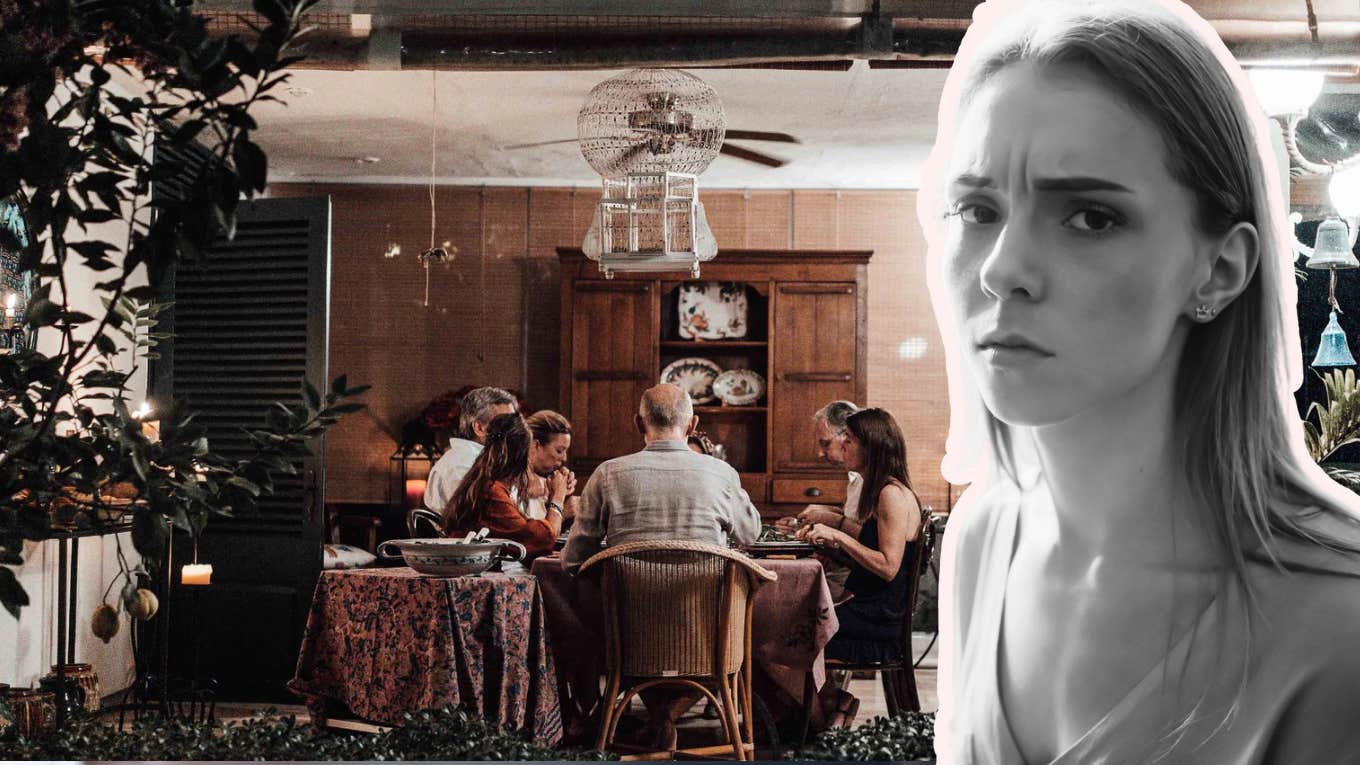The Family Scapegoat: The Role You Were Assigned, But Never Asked For
How to quit this thankless job.
 fizkes, furkanfdemir | Canva
fizkes, furkanfdemir | Canva There they were. Three generations of men, firmly standing together like a united front, smiling. Further to the left, I spot a small gap.
And there was me.
Shoulders hunched, head slightly tilted forward, an awkward smile. Why was I there again? I wondered.
I have the answer to this question now: to play a role. That of the Black Sheep.
You get to be part of the flock, but not quite belong to it.
Your typical teen
Coming home with a perfect, aesthetically pleasing grade list in high school was one way I’d collect rare scraps of positive affirmations in the form of a glance and sarcastic utterance sounding like, “How good, well done.”
But we moved around a lot. And when you switch schools, you usually can’t take your grade list with you. The whole thing is wiped, and you start afresh.
When this happened again, I felt defeated. All that work for nothing. Add:
- The aftermath of a divorce and two “adult” figures badmouthing each other
- Getting the full ioda of gaslighting at family gatherings
- Not feeling seen or appreciated
- Not being taken seriously or accepted for how I was
And you have the necessary ingredients to cook up… one angry teenager.
The Black Sheep
In the dysfunctional family, when not assigned other roles I didn’t ask for, I was assigned that of Rebel or Black sheep.
The family “scapegoat” can be seen as the person a family blames for their problems to deflect attention from the real conflict or problem*. Think of a proverbial whipping bag.
As the oldest child, I was to blame. Whether I did wrong or not, it didn’t matter.
“Shut up!”
“Stupid child.”
“That’s your fault.”
“No wonder you’re [insert insult here].”
I took the blows of mostly verbal abuse and gaslighting, although, at the time, I didn’t have a name for it all.
So I learned to shut up.
I suppressed how I felt. I didn’t want to allow anyone to dive into more rounds of insults.
Over time, I became numb to the shouting, tantrums, and gaslighting. And from around age 14–15, I started talking. The fear of getting shouted at started to dissolve. I knew it was coming. It was the same old game, and it was starting to get boring.
Keeping my head up high
At school, I let no one know what was going on.
I hid it behind the facade of a tough girl, a big-mouthed rebel. Of someone not to be messed with. And you bet no one dared to.
I walked around with so much bottled-up anger, eagerly waiting for any opportunity to unleash it. So people stayed out of my way.
The potential consequences of my behavior weren’t my concern. As long as I was a minor, I didn’t have to carry the responsibility, if anything were to go wrong. I was smart enough to keep that in mind. So I came late to school (or not at all), didn’t bother about grades because no one cared, and had the biggest of all mouths. I sought out “bad” friends and acted out in ways I regret.
Any means to make time go faster or evaporate, I welcomed.
In reality, I was just waiting to turn 18, so I could leave.
 Photo: Andrea Piacquadio/Pexels
Photo: Andrea Piacquadio/Pexels
Resigning from the role
Breaking off all contact with members of this old family unit was the change I needed.
The first few years, they tried reaching out to me, through email, or social, finding an opening where I hadn’t yet blocked them. Every new hole they found to contact me through, I blocked them there, too.
Someone else can step up as the black sheep or spit bucket, and that ain’t going to be me.
I never informed them of my resignation, but I quit the role, a long time ago.
With them out of the picture, I realized this internalized self-hate and loathing needed fixing. So I embarked on a healing journey revolving around
- Reparenting
- I assured myself that I could speak up, and nothing bad would happen
- Believing I am allowed to have an opinion and voice it
Calm comes with age — and doing The Work
I now follow my interests and care much less about what other people think, expect, or have to say about me. Therapy’s been a great help.
Unlike angry teen me, I don’t feel the need to kick, scream, and rebel against things anymore.
And I, too, am starting to get bored of repeating the same old negative stories to myself. I don’t need to be invisible, or risk getting cursed at when I speak up. That won’t happen today, although the body remembers and thinks it might.
Remember. As an adult, you have a choice in sticking around in the same old roles others shoved you into.
You can also shed this stuff. And decide which roles you want to step into.
You have a choice.
If you think you may be experiencing depression or anxiety as a result of ongoing emotional abuse, you are not alone.
Domestic abuse can happen to anyone and is not a reflection of who you are or anything you've done wrong.
If you feel as though you may be in danger, there is support available 24/7/365 through the National Domestic Violence Hotline by calling 1-800-799-7233. If you’re unable to speak safely, text LOVEIS to 1-866-331-9474.
Gracia Kleijnen writes about relationships, mental health, productivity, and self-development on Medium, and is a first-time published author of the poetry book “The Bumble Diaries: How To Make Online Dating Fun Again.” Her ideas are featured in The Startup, MuddyUm, Truity’s Blog, Google Sheets Geeks, and many more publications.
